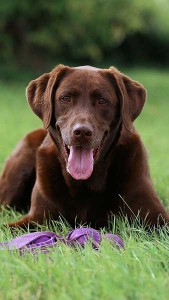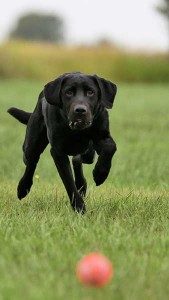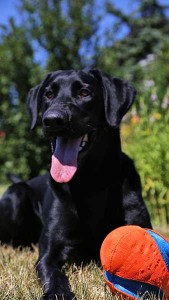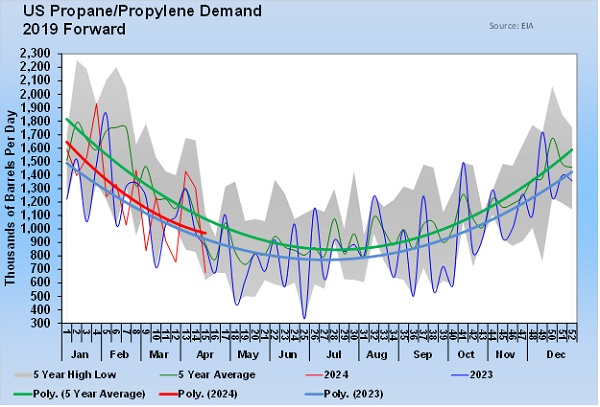Pipeline pups: Companies train dogs to detect gas and oil leaks
Bill Allen and his three pipeline-leak-detecting dogs have become well known among pipeline owners in central Canada in the past few years.
Allen, founder of OutWest Canine Consulting in Saskatchewan, Canada, launched his pipeline-leak-detecting business 12 years ago. He’s always wanted to train rescue dogs, but he says there wasn’t a big need for that service in Saskatchewan.
“There aren’t many rescue calls here around the Saskatchewan prairies,” Allen says. “But I heard about how one guy in Alberta, Canada, trained dogs to sniff for propane and natural gas leaks in pipelines, so I decided to train my dogs to detect leaks.”
In the past decade, Allen has trained four dogs to detect pipeline leaks by teaching them the smell of mercaptan, the odor that’s released when propane and natural gas leak.
“Humans can smell this, too, but dogs can smell it way quicker than we can at lower concentrations,” he says.
Today, Allen has three dogs capable of detecting pipeline leaks: Kaaxan, Rider and Ruff. He says each of his pipeline-leak-detecting dogs found their first leak before they were 2 years old. On average, Allen estimates his dogs get called out to detect 25 to 30 pipeline leaks per year, most of which are on newly constructed pipelines after they fail a pressure test.
“If a pipeline fails a pressure test, they call me and the dogs to detect where the scent of mercaptan is coming from,” Allen says. “Though sometimes we get calls for a line that’s been in the ground for a while that developed a leak over the years.”
OutWest Canine Consulting is unique, but it’s not the only pipeline-leak-detecting dog service around. Paris Nicholson started K9 Pipeline Leak Detection LLC in 2004 in Sorrento, Fla., after retiring from law enforcement.
Nicholson says only dogs with a drive to find a toy or object for a reward work for pipeline-leak-detecting jobs. He adds the best breeds for this tend to be Labradors and Belgian Malinois. This past decade, he trained 18 dogs to detect pipeline leaks with him, his partner and his son.
“We’ve been all over the U.S. and Canada,” he says. “We go out on the road: us, the dogs and the chemicals. The longest job we’ve ever been on lasted six weeks.”
While Nicholson and Allen pioneered training dogs to detect pipeline leaks, Nicholson says the concept came from Imperial Oil. The Canadian oil company sought an alternative, less-expensive way to detect pipeline leaks in the 1990s and realized dogs would be one solution.
“The only other [option] oil and gas companies have is to expose the pipeline or redig the line,” Allen says about a process that is expensive and time-consuming.
Nicholson says pipeline owners and oil and gas companies don’t usually have the time or resources to train dogs to find leaks, which is where he and Allen come into play.
Last year, Nicholson switched his business model to start training other people to start their own pipeline-leak-detecting dog services. He has taught them about chemical makeup, licensing to travel with hazardous chemicals and how to walk dogs along pipelines. In his inaugural class, six people graduated to start their own businesses.
“We had people from Montana, Texas, North Carolina and even one person from Africa take the first class,” he says.
Retired law enforcement officers tend to be good candidates to train dogs to detect pipeline leaks, as they may have experience with canine teams and hazardous materials, Nicholson says. Military veterans might also be good fits if they worked with canine teams, hazardous materials or both, he adds.
While not all people who start a pipeline-leak-detecting dog service will be guaranteed full-time work, Nicholson says, people trained in this service will have a needed skill. It will likely bring about some part-time jobs, like for Allen in Saskatchewan, who says it’s a side job for him.
Nicholson hopes to see more people get involved in this type of service.
“There’s a drawback to the business,” he says. “You can’t really fly with the dogs and hazmat chemicals to a leak call. You always have to drive there. So if we got a call from up by Canada, it would take us almost a week to get there. But if we start to see more of these businesses pop up in different areas, response times will be a lot quicker.”
Photos: OutWest Canine Consulting


















